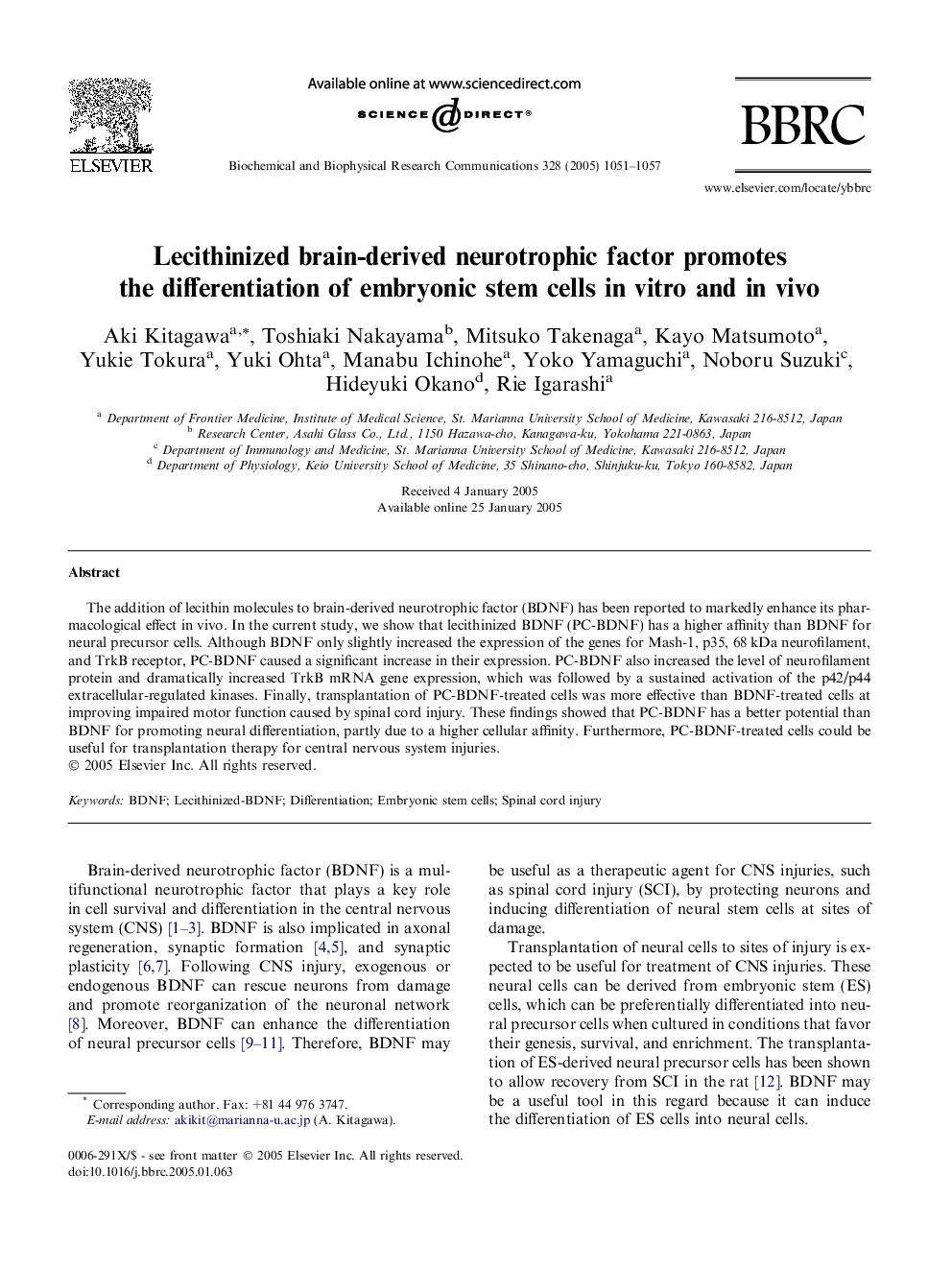| Article ID | Journal | Published Year | Pages | File Type |
|---|---|---|---|---|
| 10770623 | Biochemical and Biophysical Research Communications | 2005 | 7 Pages |
Abstract
The addition of lecithin molecules to brain-derived neurotrophic factor (BDNF) has been reported to markedly enhance its pharmacological effect in vivo. In the current study, we show that lecithinized BDNF (PC-BDNF) has a higher affinity than BDNF for neural precursor cells. Although BDNF only slightly increased the expression of the genes for Mash-1, p35, 68Â kDa neurofilament, and TrkB receptor, PC-BDNF caused a significant increase in their expression. PC-BDNF also increased the level of neurofilament protein and dramatically increased TrkB mRNA gene expression, which was followed by a sustained activation of the p42/p44 extracellular-regulated kinases. Finally, transplantation of PC-BDNF-treated cells was more effective than BDNF-treated cells at improving impaired motor function caused by spinal cord injury. These findings showed that PC-BDNF has a better potential than BDNF for promoting neural differentiation, partly due to a higher cellular affinity. Furthermore, PC-BDNF-treated cells could be useful for transplantation therapy for central nervous system injuries.
Related Topics
Life Sciences
Biochemistry, Genetics and Molecular Biology
Biochemistry
Authors
Aki Kitagawa, Toshiaki Nakayama, Mitsuko Takenaga, Kayo Matsumoto, Yukie Tokura, Yuki Ohta, Manabu Ichinohe, Yoko Yamaguchi, Noboru Suzuki, Hideyuki Okano, Rie Igarashi,
